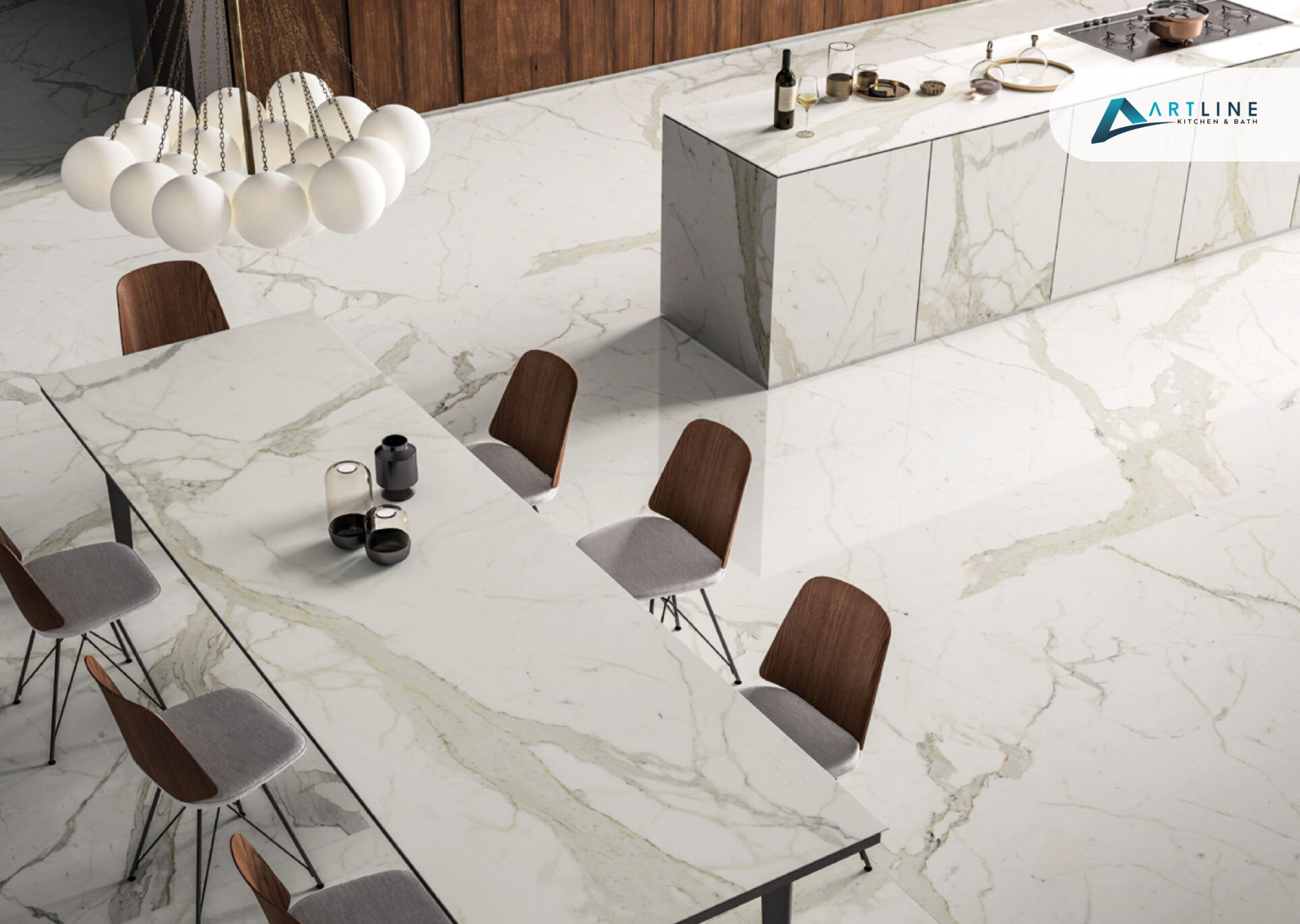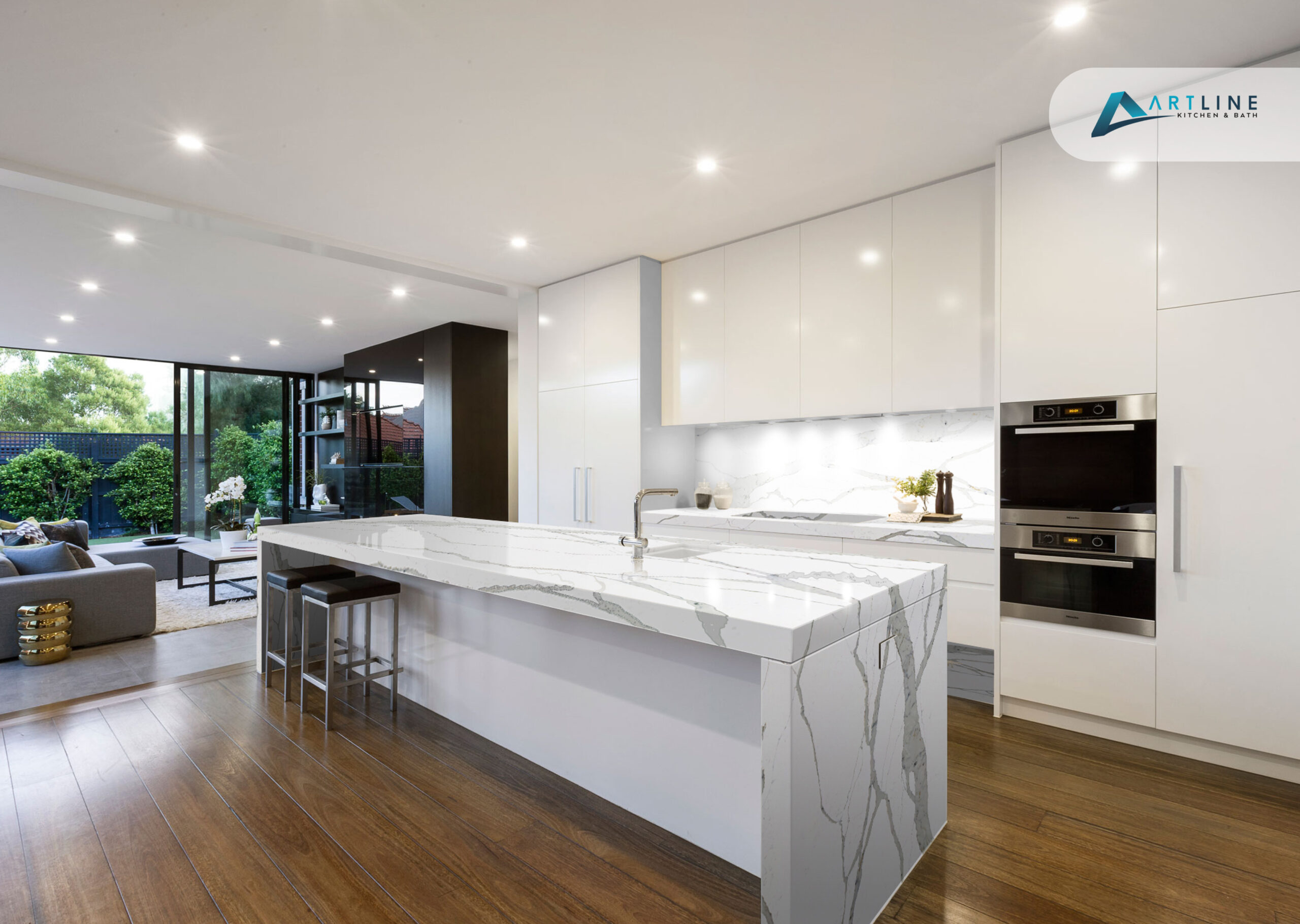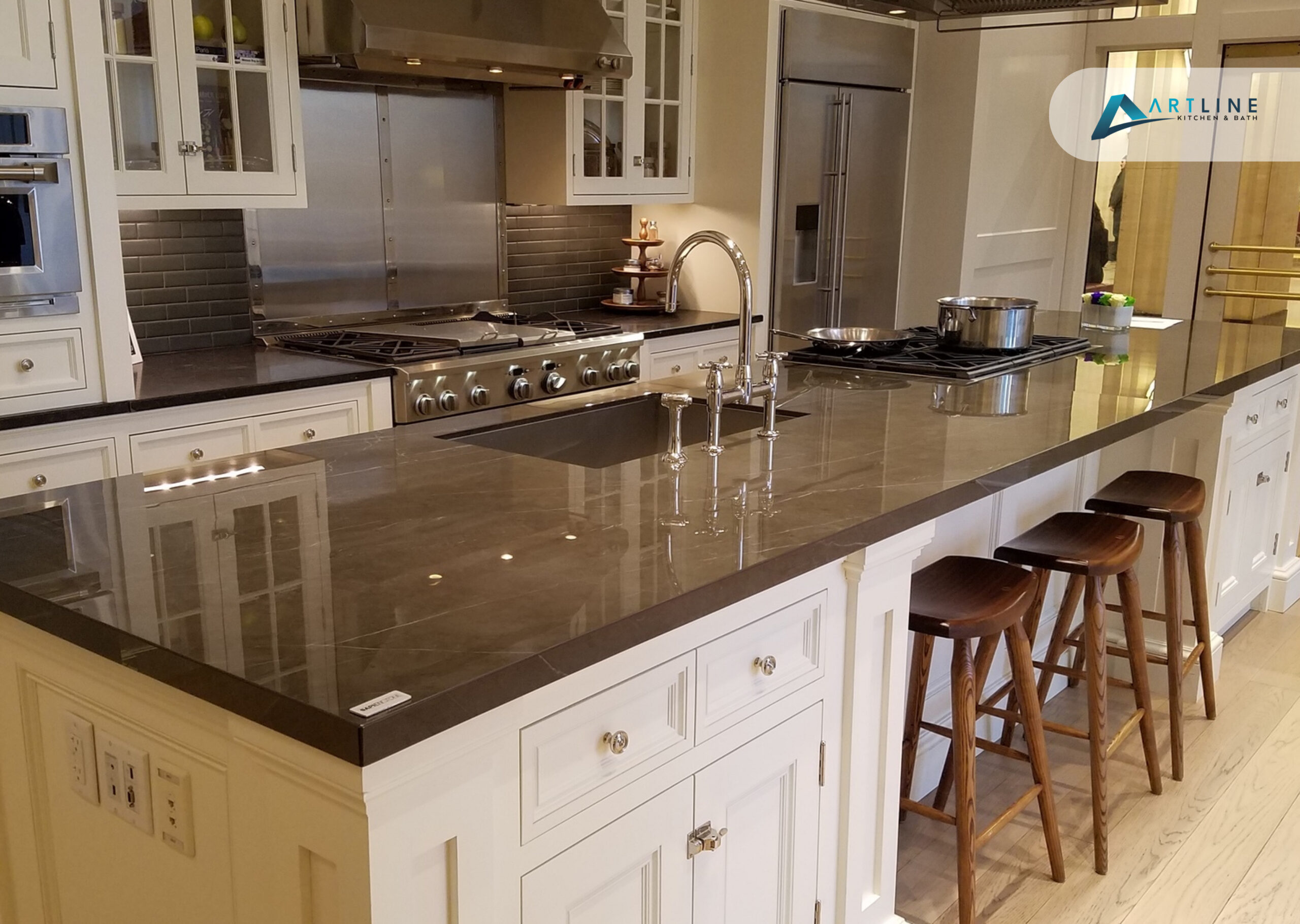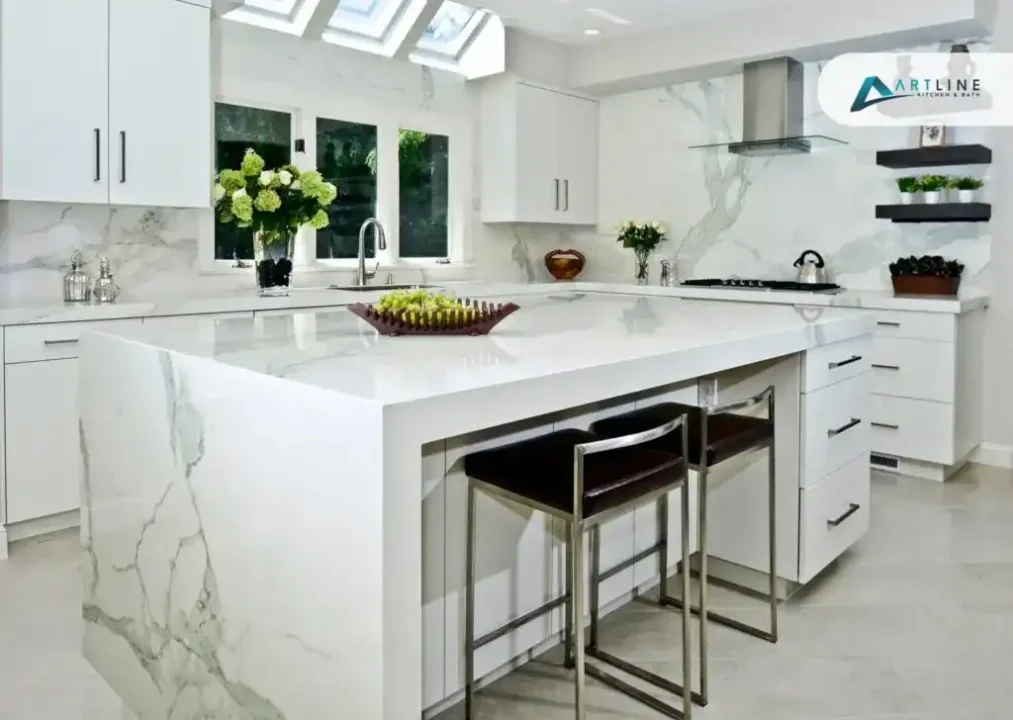Have you chosen porcelain as your go-to material for your countertops? Do you want to know whether porcelain is good for countertops and the pros and cons of porcelain countertops?
Porcelain may not be the most used material for countertops, but its popularity is rising. Why? First, it is much stronger than granite and almost as hard as quartz.
In this article, we will detail the pros and cons of porcelain kitchen countertops, their durability, and where you can buy them.
Table of Contents
TogglePros Of Porcelain Kitchen Countertops
Stain-Resistant
It’s not possible for a surface to be 100% stain-proof, but porcelain comes really close. It is non-porous, so liquids don’t absorb, and if there is a stain, it is usually on the surface and easily cleaned.
Heat-Resistant
Porcelain tile countertops are manufactured at extremely high temperatures, so they can withstand heat. Hot pots set on the surface won’t scorch or damage them.
Scratch-Resistant
Porcelain resists scratching from the best of them. Like granite and quartz, it is hard to scratch. But you have to be careful with ceramic knives as they can scratch porcelain.
Chemical-Resistant
Acidic foods, drinks, and chemicals will not dull or etch the surface finish or porcelain like marble. Chemicals will not bleach or discolor porcelain kitchen countertops, as can happen to quartz countertops.
Ultraviolet Light Resistant
Porcelain is also resistant to ultraviolet light, which prevents it from fading in sunlight, making it a great choice for outdoor kitchen countertops.
Various Colors And Patterns
Porcelain countertops come in almost all shades or patterns, and many look like marble or other natural stones.
Sealing Is Usually Not Necessary
Generally speaking, porcelain does not need sealing because the fire glazing protects against staining and moisture. However, sealing can be needed in certain instances.
Environmentally Friendly And Recyclable
Porcelain is made of 100% natural, raw, and clay-based materials. It doesn’t have any harmful chemicals and resins like quartz or other man-made surfaces.

Cons Of Porcelain Kitchen Countertops
Skin Deep Beauty
Compared to stones and other countertop materials, porcelain doesn’t come with its design built-in. Patterns are printed on the top, which means that your printed designs will not be visible where the edges are rounded. Also, in case it is chipped, the interior of the slab will be the same color, but the pattern does not exist all the way through.
Ceramic Knives May Scratch
Porcelain kitchen countertops are essentially scratch-proof, but ceramic knives may scratch them. So, either don’t use ceramic knives or opt for a cutting board.
Limited Supply And Availability
One of the only other con of porcelain kitchen countertops is finding a supplier and fabricator that knows the material well. Since it is not a common material for countertops, the market is limited. But here at Artline Kitchen & Bath, you can get Porcelain Countertops at ideal rates, so this con is essentially addressed once you visit us in Buffalo Grove, IL.
Also, check porcelain countertop costs when you are finding a supplier, as they can vary wildly. Overall, it can be achievable to find a manufacturer with competitive prices.

What is a Porcelain Countertop?
Do you want to know what a porcelain countertop is? Porcelain is mainly made from clay, but the clay used to create porcelain is a specific kind called ‘China clay’. This clay has a high percentage of kaolinite, along with silica, feldspar, and other mineral oxides, which combine to create the strength and durability of porcelain.
This combination is put into a kiln and fired at temperatures of 2550℉ / 1400℃. This results in an extremely dense material that is almost unaffected by stains, heat, UV rays, scratching, chips, and cracks.
Pigmented glazes are added during the manufacturing process to create different colors and patterns on the porcelain. You can also opt for glazed or non-glazed porcelain. A matte or high-gloss glaze (with or without a pattern) is applied, and then the porcelain is fired a second time to adhere the glaze completely.
The glaze lowers the porosity and risk of staining, increases durability, and gives the porcelain a shiny finish.
Is Porcelain Good For Countertops?
Porcelain is an excellent choice for countertops because it is as hard as granite and quartz and, in some cases, even harder. It is also difficult to scratch, chip, or crack.
Porcelain is also moisture—and waterproof, ensuring that nothing will penetrate the material’s body and that it is easy to clean. It is also frost-resistant, making it the perfect choice for installation in Alaska since no sealers are needed.
Porcelain kitchen countertops also resist the most aggressive chemical agents. Acids found in foods like tomatoes and lemon juice are impenetrable; they won’t get etched or develop dull spots.
Want to buy porcelain countertops? Book a consultation and get a free estimate right now.
Are Porcelain Countertops Durable?
Let’s examine how porcelain compares to other countertop surfaces in terms of hardness. Marble ranks about 3–5 on the MOH’s hardness scale, while granite is 6–7, and engineered quartz is around 7.
Porcelain can have a hardness rating that is 30% higher than granite, which comes in at 7–9. Diamonds, the hardest substance on earth, are the only material to rank at the peak hardness of 10.
Because of this, porcelain tile countertops are resistant to chips, cracks, scratches, and abrasions that could ruin other countertop surfaces.
Still curious about how durable porcelain countertops really are? Visit our porcelain showroom near Buffalo Grove.

Porcelain Countertops Cost
Because of their fragile nature and complex fabrication process, porcelain kitchen countertops are slightly higher-priced than quartz. Another factor contributing to the cost of porcelain countertops is finding a fabricator with experience working with these porcelain slabs.
Porcelain vs Marble
Porcelain can be used in interior and exterior applications, while marble is more suitable for indoor use. Marble offers easier installation than porcelain. While porcelain is easier to maintain than marble, it is more prone to cracking.
Where To Buy Porcelain Countertops?
There are various markets in the city where you can buy porcelain kitchen countertops. All of the suppliers will have different rates, colours, and patterns, so do your research before buying one. Or simply visit Artline Kitchen & Bath and discover an ultimate selection of Porcelain featured at the best price range in your vicinity.
Conclusion
In the long run, the benefits of porcelain outweigh the drawbacks and rank porcelain among the best countertop materials. So, with the right planning and care, porcelain tile countertops can certainly be a practical and fashionable choice for your modern kitchen.

